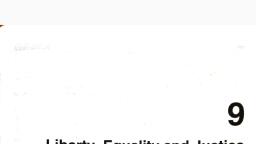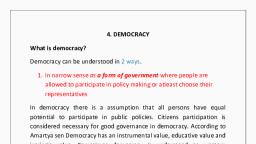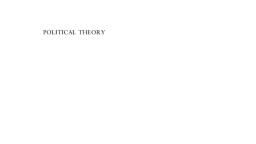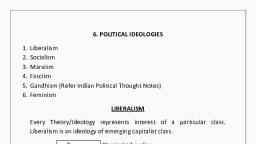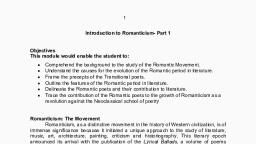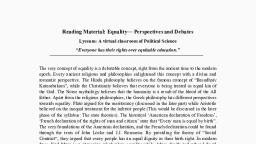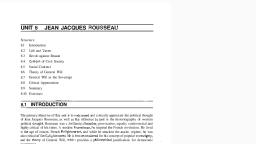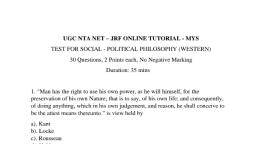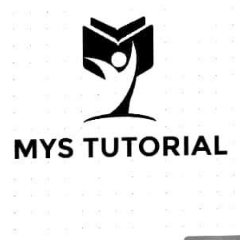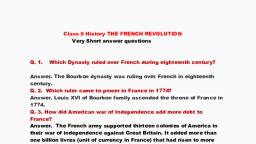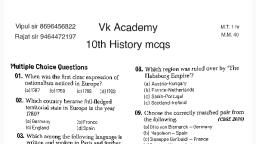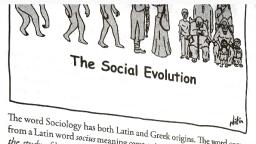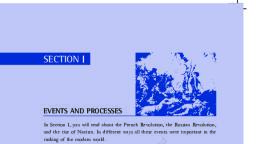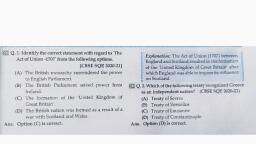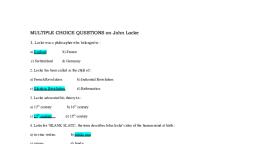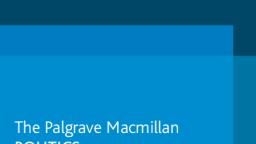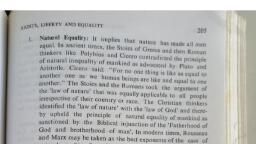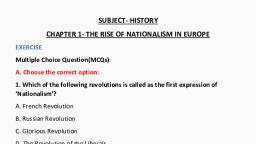Page 1 :
Liberty
Page 2 :
Liberty and freedom are used synonymously and, interchangeably, Berlin says both mean one and the same, He said Liberty is used in legal and political, contecontext. And freedom in philosophical and more, general
Page 3 :
• Arendt said liberty implies protection from state, interference and freedom implies active, involvement in politics
Page 4 :
Freedom means ability of a person to act in some, particular way in a given set of circumstances., Liberty means authoritative permission to act in, particular way.
Page 5 :
• American declaration of independence says, 'individuals are endowed with certain inalienable, rights,
Page 6 :
Machiavelli, Rousseau, and Arendt are the, exponent of republican notion of freedom. In, which an individual plays an active role in, government.
Page 7 :
Rousseau statement 'man was born free but is, everywhere in chains ' where he tries to reconcile, individual liberty with political authority.
Page 8 :
In Republican notion of freedom Arendt equates freedom with, Republican., In liberal view of freedom as property of individuals and, expect state non interference, J S Mill's classic On liberty represent substance of liberal view.
Page 9 :
The idealistic view of freedom a person is free when, he is autonomous. This view is represented by Hegel, and Green.
Page 10 :
For Rousseau freedom means obeying general, law., For Hegel freedom means obedience to self, precribed law.
Page 11 :
Marxist view of freedom means self realization and self, determination., Montesquieu's ideas influenced the authors of, federalist paper. And the US constitution is modelled, along his suggestions.
Page 14 :
REFERENCE, • Hayes, C.J.H., Modern Europe up to 1870., • Hazen, C.D., Modern Europe up to 1945., • Dayal, R. (1989). Modern European History. New Delhi: CBS Publishers &, Distributors., , • Khurana, K.L. (1998). Modern Europe. Agra: Lakshmi Narain Agarwal, Educational, Publishers., • B.V.Rao. (1991). History of Modern Europe. U.P: Sterling Publishers Pvt. Ltd.




















